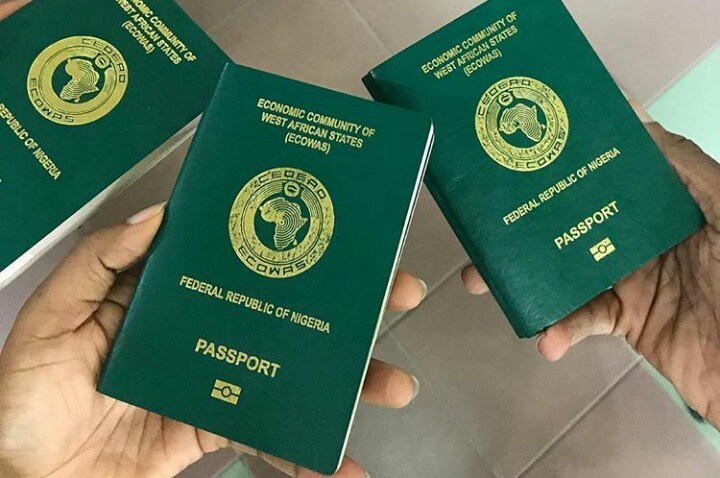Naija passport
Years ago, I was invited to a festival in South Africa. I called the embassy to ask how long a visa would take and what the requirements were. “What passport do you hold?” There was an edge to the question. A sharpness like a blade. It didn’t seem merely curious. There was something else there, […]

Nigerian passport
Years ago, I was invited to a festival in South Africa. I called the embassy to ask how long a visa would take and what the requirements were. “What passport do you hold?” There was an edge to the question. A sharpness like a blade. It didn’t seem merely curious.
There was something else there, maybe a suspicion that my accent had triggered. It might have been my imagination, I am a writer after all. “Nigerian.” I was told it would take some weeks (which I didn’t have) but that it wasn’t a given that I’d even get a visa. Not on a Nigerian passport. The voice was now almost dismissive. The subtext was that I shouldn’t bother trying. “And on a Belgian passport?” I wanted to know. The voice, incredulous, asked if I had a Belgian passport. I said I did. Then why did I want to travel on a Nigerian one?
I didn’t have the energy to explain that I didn’t want to travel to Africa on a European passport, that it seemed wrong. Embarrassing almost. That it was a matter of pride for me. So I said nothing. The voice, the sharpness blunted into something shiny and smooth told me to pass by the next morning to drop my passport. I could collect it, all stamped and ready to go, by noon.
The incredulity of the South African embassy staff is understandable. There are levels to passports, as we say in Nigeria. The Nigerian passport is ranked 98th out of 199 on the 2022 Henley index. With it, one can enter into only 45 countries visa free or get visa on arrival, and in the latter case, entry is not always guaranteed.
A Nigerian Twitter user complained last year of arriving Mozambique (which has no embassy in Nigeria and whose website said she could get a visa on arrival) only to be turned back because she needed a letter of invitation from a Mozambican resident. When she posted her story on Twitter, her time line was flooded with stories of others who have suffered the indignities showered upon the unfortunate bearers of passports that are neither powerful nor desirable and therefore people not entirely deserving of respect.
I spoke to someone who told me of her sister (a Nigerian passport holder) who was living and working in the US, and who was denied a UK visa for having “insufficient funds.” Why would her sister, she said, give up a life of legal residency in the US for one of an undocumented person in the UK? And yet young American and European students can move around the world fluidly – travelling to African countries should they wish – without anyone worrying about how much money they’ve got on their accounts.
Another person told me of a man who was denied a visa because – despite having a job and family in Lagos – there wasn’t enough proof that the ties he had in Nigeria were strong enough for him not to abandon them and spend his years looking over his shoulder in New York wondering when he would be deported.
Someone else assured me that the US embassy has a quota for the number of people allowed for interviews or allowed to be issued visa, and once that quota is reached, that’s it. “They’ll just be sending you from pillar to post.” Competition is stiff and once through, once that visa is stamped, whether it is for one week or for one year, the relief is immense.
Nevertheless, Nigerian passport holders know that that visa in their passport doesn’t necessarily mean that one would be allowed into the country. A friend’s sister had a valid visa for the US but was turned back when her BA flight had a layover in London. Airline staff said she looked pregnant and was likely just coming to the United States to have a baby.
Another person’s brother who was coming with his family to spend some time in the US from Nigeria were detained at the Atlanta airport and bundled off on the next available flight back home because the immigration officer who saw them had somehow determined that they would try to stay on as undocumented people rather than return to Nigeria.
Sometimes, the stakes of being denied entry or denied a visa are being unable to attend prestigious residences and conferences abroad; being unable to hold your first grandchild; being unable to be at the side of a sick or dying relative; missing the opportunity of saying goodbye.
If Nigeria were in a better state, if our global image wasn’t abysmally poor, our passport too would be powerful.
